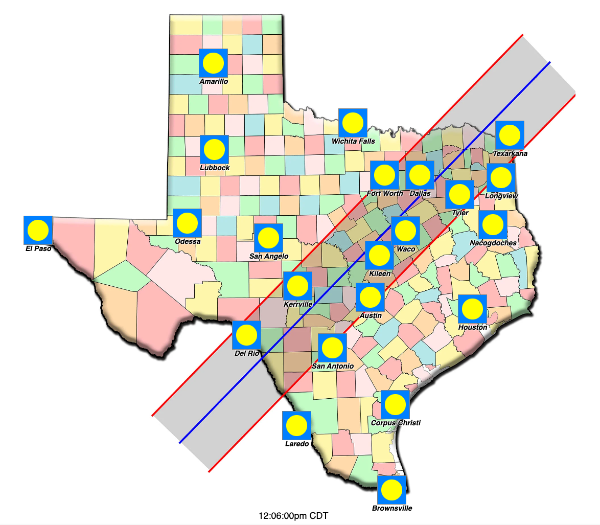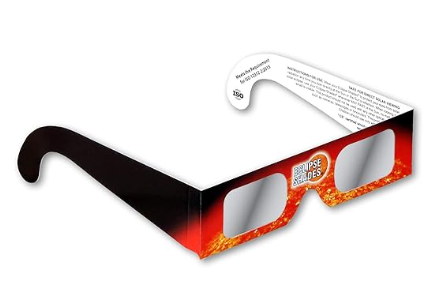Friday, March 8, 2024
A rare total solar eclipse will sweep across Texas on Monday, April 8, one month from today, and UNT Dallas will be ready.
From experienced skywatchers to novice enthusiasts and curious bystanders, this will be an event to experience and remember. For educators and students, it will be an opportunity to teach and learn.
 This will be the first total solar eclipse visible in Texas since 1878. Several events
are planned on the UNT Dallas campus to mark the occasion.
This will be the first total solar eclipse visible in Texas since 1878. Several events
are planned on the UNT Dallas campus to mark the occasion.
The Department of Natural Resources in the School of Liberal Arts and Sciences invites you to prepare for this rare event with important advice from a local expert. On Thursday, March 28, from 4 – 5 p.m., in Founders Hall, Room 101, Dr. Marc Hairston will visit us from the nearby University of Texas at Dallas. Dr. Hairston will explain what causes eclipses, why we are seeing them here and now, what they will look like, and how you can observe them safely. He will also tell the stories of famous eclipses in history and how various cultures from the ancient world to today react to them.
Dr. Marc Hairston is a research space scientist who uses satellite data to study the upper atmosphere of the Earth and how it interacts with the sun, the Earth’s magnetic field, and the solar wind from the sun.
 Then, on April 8, don’t miss this once-in-a-lifetime occurrence, as the Department
of Natural Sciences hosts a viewing party. Mark your calendars and stay tuned for
more details.
Then, on April 8, don’t miss this once-in-a-lifetime occurrence, as the Department
of Natural Sciences hosts a viewing party. Mark your calendars and stay tuned for
more details.
Dr. Faranak Zarnani, a physics lecturer and chair of the UNT Dallas Eclipse Event Planning Committee, received a grant from the American Astronomical Society to host the gathering. It will start around noon and end around 3:30 p.m.
Experts say the moon will start blocking the sun about noon; totality will begin at 1:30 p.m. near Del Rio and trace a line northeast across Texas. Totality will last from a few seconds to about 4.5 minutes depending on where you are along the path. Only those in the path of totality will get the full eclipse experience.
 You will see a partial solar eclipse before and after the time of greatest coverage.
If you’re outside of the eclipse’s path of totality, you will see a partial eclipse.
It’s safe to look directly at the sun only during the few minutes of totality. Be sure to protect your eyes by using special eclipse glasses or an indirect observation method, like a pinhole viewer.
You will see a partial solar eclipse before and after the time of greatest coverage.
If you’re outside of the eclipse’s path of totality, you will see a partial eclipse.
It’s safe to look directly at the sun only during the few minutes of totality. Be sure to protect your eyes by using special eclipse glasses or an indirect observation method, like a pinhole viewer.
This report from NBC5 gives you a hint of what to expect. State parks are preparing to host visitors for the eclipse as it moves across Texas. An organization called Citizen CATE will set up four telescopes in North Texas as part of a nationwide volunteer project. It is made up of students, teachers, community members and retirees.
Regardless of where you watch it, the April 8, 2024 eclipse promises to be remarkable.
From UNT Dallas News